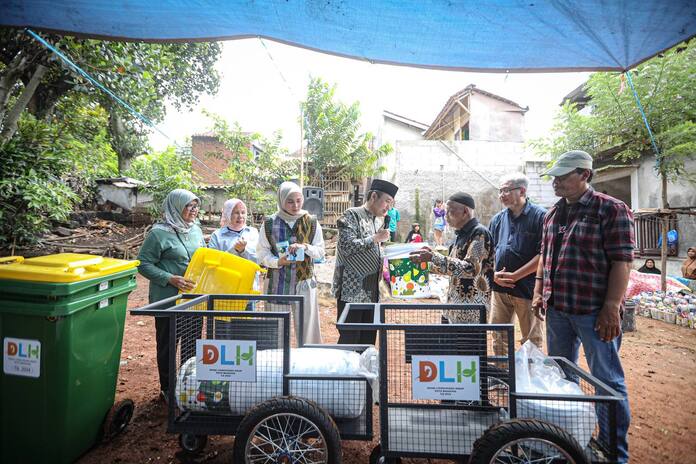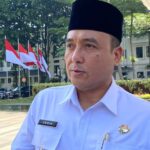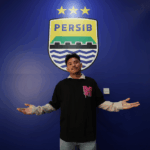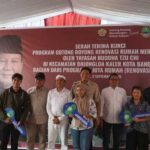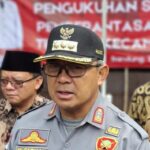The Bandung City Government continues to accelerate waste management efforts as the volume of accumulated waste becomes increasingly concerning. However, the Deputy Mayor of Bandung emphasized that the waste management situation in Bandung City is not yet in an emergency category.
He explained that the strategic steps taken by the Bandung City Government to strengthen waste management demonstrate the city government’s seriousness in addressing this classic urban problem. A combination of incineration, maggot processing, and community-based programs forms a new formula towards a cleaner and more sustainable city.
“It’s not an emergency yet, thankfully. Currently, we already have 11 incinerators operating at several points in the city,” he stated during a meeting at Bandung City Hall.
He revealed that 11 thermal technology-based waste processing machines are now functioning in various areas, including in Banturengat (Bandung Kulon), Bakul Agamis, Cicukangholis, Sumur Bandung, TPS Patrakomala, Cinambo, UPT Alat Berat DSDADM, Lengkong, Sesko AD Buah Batu, Kiaracondong, Cibeunying, and Antapani. Some of these, such as in Lengkong and Buah Batu, were built through the Wisang Geni investment scheme involving third parties.
According to him, most of these incinerator projects are financed through private investment cooperation, and the Bandung City Government plans to add budget to strengthen the program through the 2026 Regional Budget.
“To expand the scope of processing, we have prepared a plan for additional budget in next year’s regional budget,” he said.
He also explained that Bandung City’s waste production, which reaches 1,496 tons per day, has now begun to be reduced. Through the optimization of incinerators and the strengthening of community-level programs, approximately 520 tons of waste have been successfully reduced.
“If previously waste shipments to the landfill reached 1,140 tons, now it has dropped to 980 tons. This means there has been a quite significant reduction,” he said.
As a sustainable step, he mentioned that the Bandung City Government continues to strengthen the Waste-Free Zone program. Currently, there are more than 400 waste-free areas, and that number is targeted to reach 700 areas by the end of 2025.
“In addition to incineration, we are also boosting the maggot processing program at 151 organic waste points. The Mayor has also recruited 1,597 waste sorting officers at the neighborhood level,” he said.
These officers were recruited from community members who have concern for waste management in their environment.
“We focus from the upstream level. If waste can be sorted at the neighborhood level, then organic waste can be processed through maggot cultivation, while inorganic waste can be sold to waste banks or destroyed with thermal machines,” he explained.
Although various programs are running, mentoring and training for waste sorters is still in process.
“Mentoring is underway, still in procedure. We continue to monitor the progress so it can become effective soon,” he said.
He added that the community sorting and mentoring program is currently still under discussion with the Bandung City Council through the TPPS forum.
“It’s still being discussed with the council, as it hasn’t been fully budgeted in the regional budget,” he added.
Regarding operational feasibility, he emphasized that all incinerators used already meet Indonesian National Standards.
“All equipment meets national standards. Although there is a circular from the ministry regarding restrictions on incinerator use, our equipment already complies with national standards and is safe to use,” he explained.
Additionally, the Bandung City Government is also exploring cooperation to utilize Refuse Derived Fuel technology, which allows dry waste to be processed into alternative fuel for cement factories.
“This was previously discussed with the governor and the Ministry of Environment, with plans to send this RDF to cement factories in Sukabumi. But we’re still monitoring the development,” he said.
Through collaboration of all elements, both government, private sector, and community, he is optimistic that Bandung’s waste problems can be resolved gradually and measurably.
“Of the 520 tons of waste we must manage every day, all parties must work together. I believe that through collaboration, this handling can

